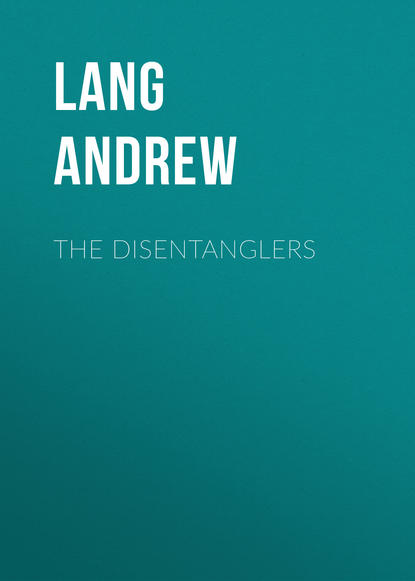По всем вопросам обращайтесь на: info@litportal.ru
(©) 2003-2025.
✖
The Disentanglers
Настройки чтения
Размер шрифта
Высота строк
Поля
‘That is it,’ said the visitor – ‘the Gowrie mystery! You may remember that an unknown person, a friend of your ancestor, was engaged?’
‘Yes,’ said Logan; ‘he was never identified. Was his name Harris?’
The peer half rose to his feet, flushed a fine purple, twiddled the obsolete little grey tuft on his chin, and sat down again.
‘I think I said, Mr. Logan, that the hitherto unidentified associate of your ancestor was a member of my own family. Our name is not Harris – a name very honourably borne – our family name is Guevara. My ancestor was a cousin of the brave Lord Willoughby.’
‘Most interesting! You must pardon me, but as nobody ever knew what you have just found out, you will excuse my ignorance,’ said Logan, who, to be sure, had never heard of the brave Lord Willoughby.
‘It is I who ought to apologise,’ said the visitor. ‘Your mention of the name of Harris appeared to me to indicate a frivolity as to matters of the past which, I must confess, is apt to make me occasionally forget myself. Noblesse oblige, you know: we respect ourselves – in our progenitors.’
‘Unless he wants to prevent someone from marrying his great-grandmother, I wonder what he is doing with his Tales of a Grandfather here,’ thought Logan, but he only smiled, and said, ‘Assuredly – my own opinion. I wish I could respect my ancestor!’
‘The gentleman of whom I speak, the associate of your own distant progenitor, was the founder of our house, as far as mere titles are concerned. We were but squires of Northumbria, of ancient Celtic descent, before the time of Queen Elizabeth. My ancestor at that time – ’
‘Oh bother his pedigree!’ thought Logan.
‘ – was a young officer in the English garrison of Berwick, and he, I find, was your ancestor’s unknown correspondent. I am not skilled in reading old hands, and I am anxious to secure a trustworthy person – really trustworthy – to transcribe the manuscripts which contain these exciting details.’
Logan thought that the office of the Disentanglers was hardly the place to come to in search of an historical copyist. However, he remembered Miss Willoughby, and said that he knew a lady of great skill and industry, of good family too, upon whom his client might entirely depend. ‘She is a Miss Willoughby,’ he added.
‘Not one of the Willoughbys of the Wicket, a most worthy, though unfortunate house, nearly allied, as I told you, to my own, about three hundred years ago?’ said the Earl.
‘Yes, she is a daughter of the last squire.’
‘Ruined in the modern race for wealth, like so many!’ exclaimed the peer, and he sat in silence, deeply moved; his lips formed a name familiar to Law Courts.
‘Excuse my emotion, Mr. Logan,’ he went on. ‘I shall be happy to see and arrange with this lady, who, I trust will, as my cousin, accept my hospitality at Rookchester. I shall be deeply interested, as you, no doubt, will also be, in the result of her researches into an affair which so closely concerns both you and me.’
He was silent again, musing deeply, while Logan marvelled more and more what his real original business might be. All this affair of the documents and the muniment-room had arisen by the merest accident, and would not have arisen if the Earl had found Merton at home. The Earl obviously had a difficulty in coming to the point: many clients had. To approach a total stranger on the most intimate domestic affairs (even if his ancestor and yours were in a big thing together three hundred years ago) is, to a sensitive patrician, no easy task. In fact, even members of the middle class were, as clients, occasionally affected by shyness.











